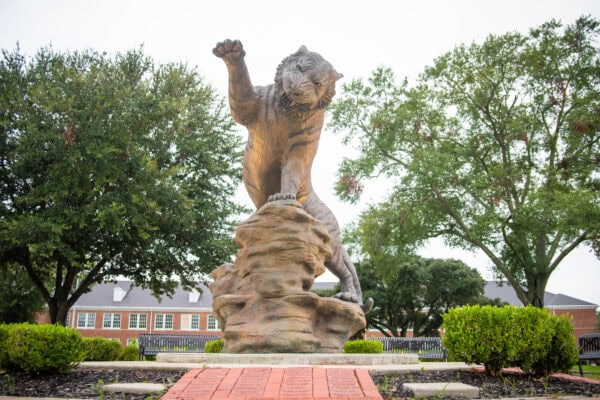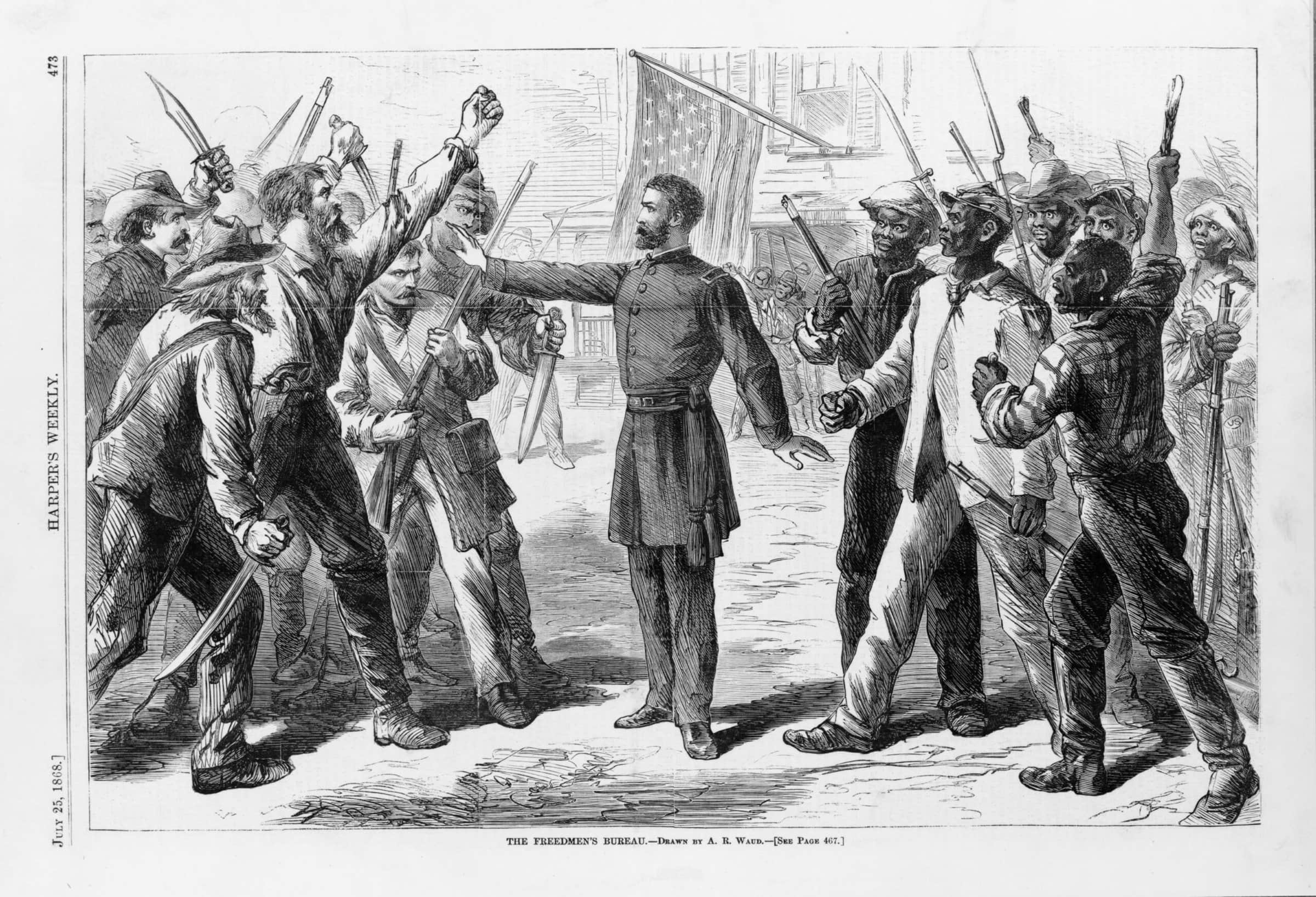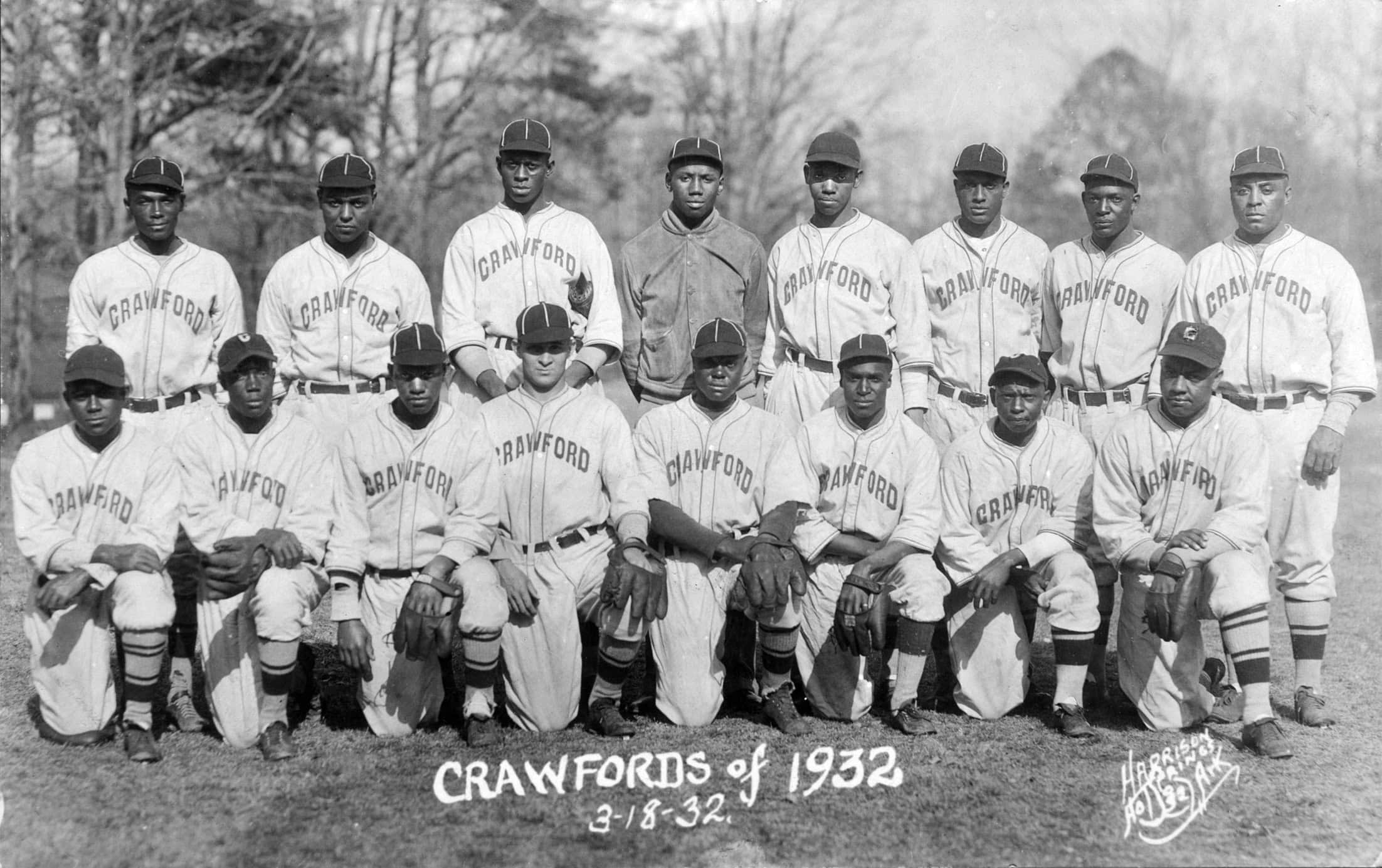I am a white professor at a state-run historically Black university (HBCU). Over the past year or so I have become more introspective about my position. The Black Lives Matter movement, reactions to the Trump administration, explicitly racist voting restrictions, a growing sense of white supremacist–driven politics, and African Americans’ reactions to them have left me with a deep feeling of uncertainty. Unfortunately, I have concluded that while historians working in higher education most often say the right things, they generally fail to turn these sentiments into action—something I would not have noticed if I did not teach at an HBCU.

A statue of a tiger, the school’s mascot, stands on the campus of Grambling State University. Carlton Hamlin, Grambling State University
While the conversation around many HBCUs often focuses on their financial situation and the effects of systemic racism, it is also important to highlight how the unique environment provides tremendous benefits to faculty and students. From my perspective, the advantage that stands out the most is the opportunity to teach students who are excited to discuss race. The predominantly white institutions (PWIs) I have been associated with (as a student and graduate instructor), and conversations I have had with colleagues at these and similar institutions, suggest that white students are far more hesitant to discuss race than my African American students. In fact, I have never been around people so willing to have meaningful, deep conversations about race as my students. From these conversations, I have learned that they find the atmosphere at an HBCU more welcoming and a better forum to frankly discuss their experiences. Teaching students in such an environment is wonderfully liberating.
While the American historical profession most often says the right things, it generally fails to turn these sentiments into action.
Despite the personal and intellectual satisfaction I feel teaching at an HBCU, I have been particularly frustrated by the ways that many white historians treat HBCUs, our faculty, and our students. When I first took my job, a former colleague made the memorable comment that granting agencies would assume I was African American and “shower me with money.” The racist assumption that working at an HBCU would make granting agencies think I am Black, and therefore more worthy of funding than a white person, initially struck me as out of touch. With greater experience it strikes me as a symptom of the casual racism directed toward HBCUs by historians working in higher education.
Since starting the job, and ultimately earning tenure and a promotion into an endowed chair, I have continued to experience a dismissive attitude from some white historians. Once, a colleague I had known for years assumed that our department was skipping a year of Phi Alpha Theta inductions because the students had GPAs too low. The real reasons were purely administrative and student preference. A different colleague met with one of the strongest students I have ever taught and explained to her that she was going to find out what school was really like when she went to a “real” university for graduate school. Sadly, I have many more anecdotes like these. The historians in these cases are caring, scholarly individuals, but they just could not get out of the way of their own whiteness. Sometimes I wonder if faculty from PWIs treat students from “elite” HBCUs, such as Spelman College, more like their own students, but I suspect they would treat white students from a nonelite school better than my Black students.
White historians must recognize that they can contribute to white supremacy in ways they may not intend or recognize.
Additional issues related to faculty life at a state-run HBCU like mine are broader but no less significant. Since graduate school, I have heard faculty collectively bemoan the lack of tenure-track positions. At the same time, I have been stunned to realize that our tenure-track job postings attract little interest. We advertise them and often email them directly to graduate advisers for a few states in each direction. While our applicant pools have always contained quality applicants, they routinely receive fewer applicants than I expect. Admittedly, we are a teaching-focused school with a 4/4 teaching responsibility, something that may turn off recent grads hoping to pursue a career in research. In contrast, friends of mine at teaching-oriented PWIs complain about how many applications they have to weed through. Our search committees have sometimes completed their work over lunch.
As an HBCU faculty member active in professional societies, I am acutely aware of the lack of HBCU representation in our field’s major associations. The AHA has one elected official from an HBCU, and is thus an outlier in the field. Things are no better on the editorial boards of major journals. The American Historical Review is a leader by virtue of having one member from an HBCU. The AHA has already taken some action to better include HBCUs, their students, and their faculty in the discipline. It has conducted research into these issues and taken meaningful steps. Still, we can do better. There are more barriers than just overlooking HBCUs at play—the perceived hegemony of a select few research schools remains a problem—but I have come to believe that it would be wise for these organizations to hear more voices from faculty at HBCUs. Bringing more HBCU faculty into professional organizations will also show HBCU students that history is truly open to their participation and will value their experiences.
The AHA, other professional organizations, and the diverse members of the historical discipline have to do more than simply recognize that HBCUs are a viable and meaningful part of our system of higher education. Graduate students should be encouraged to apply for jobs at HBCUs like mine, editorial boards and professional organizations should reach out to HBCU faculty, and, most importantly, white historians must recognize that they contribute to white supremacy in ways they may not intend or recognize. Until the discipline is ready to recognize HBCUs, our faculty, and our students as equal participants, its statements on diversity and empathy for students of color will remain conditional.
Brian M. McGowan is a history professor at Grambling State University.
This work is licensed under a Creative Commons Attribution-NonCommercial-NoDerivatives 4.0 International License. Attribution must provide author name, article title, Perspectives on History, date of publication, and a link to this page. This license applies only to the article, not to text or images used here by permission.


